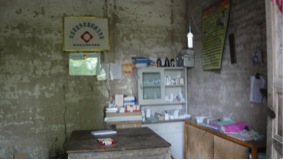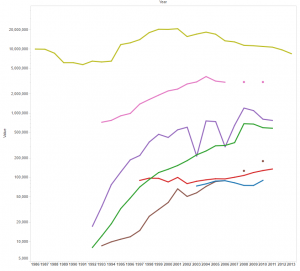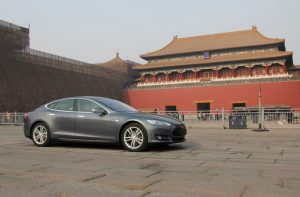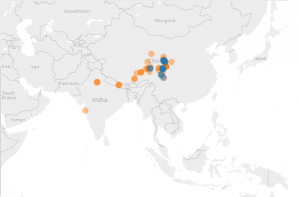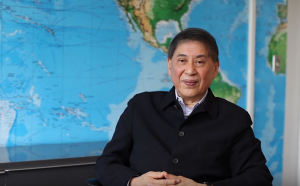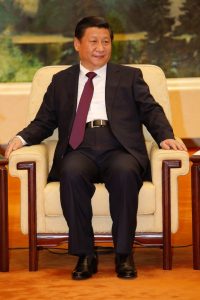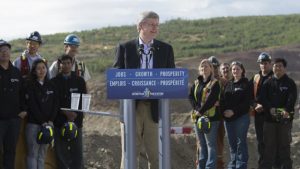Canada – China FIPA: Just the Facts, Please
Memo #313 By Matthew Levine – matthew.a.j.levine [at] gmail.com Canada’s Foreign Investment Promotion and Protection Agreement with China (China FIPA), which entered into force October 1, 2014, is a laudable step towards norms-based economic relations in the Asia-Pacific. My two goals here are to briefly introduce key developments in the China FIPA and to put […]
After the Massacre of 2011: Challenges to Peace and Security along the Mekong River
Memo #312 By Kai Chen – chenkai [at] zju.edu.cn In the so-called “Mekong River massacre” of October 2011, 13 Chinese merchant sailors working on the Mekong were seized and murdered by members of the Hawngleuk Militia led by its Burmese leader Naw Kham. Later captured in Laos and extradited to China, Naw Kham was found […]
The Lost Generation: “Barefoot Doctors” in Post-Reform China
Memo #309 By Jiong Tu – jt457 [at] cam.ac.uk China’s barefoot doctor system is known for having provided inexpensive and accessible medical care to its large rural population in the 1970s. But the system became bankrupt with the advent of market reforms in the 1980s and many barefoot doctors either became private doctors or gave […]
Big Noise, Big Settlement: the Logic of Claims-making in China
Memo #308 By Sophia Woodman – Sophia.Woodman [at] ed.ac.uk The twenty-fifth anniversary of China’s nationwide democracy movement and its suppression in June 1989 was marked in the mainland by an imposed silence. Revisiting the “verdict” that the demonstrations were a “counterrevolutionary rebellion” does not appear to be on the horizon. But this does not mean […]
Are Chinese Citizens becoming more Assertive? Perspectives from the (Limited) Data
Memo #307 By Sophia Woodman – Sophia.Woodman [at] ed.ac.uk The last decade has seen an explosion of academic and media reporting about protests in China. Chinese citizens’ access to social media makes it harder for the authorities to suppress information about unrest. Even when mainstream media reporting is censored, often the news of an event […]
Charging Beijing’s Electric Vehicles Policy
Memo #306 By Marc McCrum – mbmccrum [at] alumni.ubc.ca and Grégoire-François Legault – gregoire.legault [at] alumni.ubc.ca According to the World Bank, Beijing’s poor air quality costs $300bn a year in healthcare costs and premature deaths. Of Beijing’s air pollution, over 30% is estimated to be the direct result of vehicle exhaust. In September 2013, as […]
Suicide Protesters in Eastern Tibet: The Shifting Story of a People’s Tragedy
Memo #302 By Antonio Terrone – a-terrone [at] northwestern.edu The recent wave of self-immolations across the Eastern Tibetan regions of the People’s Republic of China continues to leave the world in dismay for both its violence and determination. They also represent a new shift in terms of the demography of protesters in Tibetan society. Among […]
My Father and the Republic: A Talk with Novelist, Dramatist, and Historian Pai Hsien-yung (Video Interview)
Memo #298 Last fall the Asia Pacific Memo sat down with Pai Hsien-yung (Bai Xianyong 白先勇), the renowned novelist and son of Pai Chung-hsi (Bai Chongxi 白崇禧, 1893–1966), a gifted general and strategist, key Kuomintang leader, and close associate of Chiang Kai-shek, with whom he had a long and stormy relationship. While Pai Hsien-yung is a worthy subject […]
Nǐ sǐ wǒ huó (“You Die, I live”): Xi Jinping’s Anti-Corruption Campaign as Power Consolidation
Memo #295 By Elizabeth MacArthur – e.macarthur [at] alumni.ubc.ca In a speech made shortly after coming to power in the fall of 2013, Chinese President Xi Jinping famously vowed to crack down on CCP and State corruption by “upholding the fight against tigers and flies”. Over a year later, he has made good on his […]
Chinese SOEs and Non-Renewable Resource Development in Alberta
Memo #294 By Daniel Wood – dwood [at] alumni.ubc.ca Canada’s abundance of non-renewable energy resources, such as conventional and synthetic crude and natural gas, are vital to the national economy. According to Statistics Canada, jobs from this sector currently contribute to 4% of Canada’s total labour force and 6.2% of its GDP. Meanwhile, the number […]


